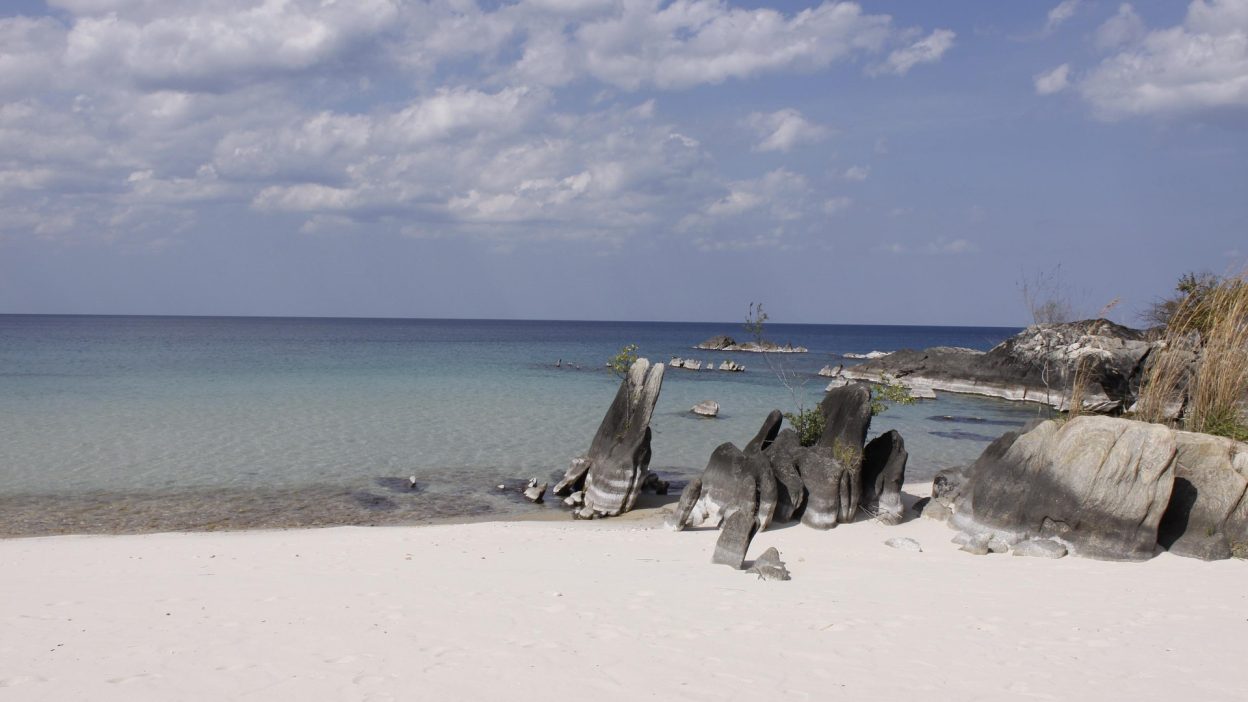Unprepared And Devastated – A Nation’s Struggle For Survival And Recovery
The 2000 Mozambique Flood remains one of the most catastrophic natural disasters in Southern Africa’s recent history. Triggered by heavy rains, swelling rivers, and the effects of Cyclone Eline in February 2000, the flooding wreaked havoc on Mozambique. As a country grappling with poverty and limited resources, Mozambique was not prepared to cope with the magnitude of the disaster. Entire communities were submerged, displacing millions and causing extensive damage.
In the wake of the disaster, Mozambique became a symbol of resilience, though the event also sparked important discussions on how nations can better manage such catastrophic events in the future. The flood underscored the need for stronger disaster management systems both locally and globally to reduce the human and economic toll of such calamities.
The 2000 Mozambique Flood: Government Response Criticised for Inaction
The response from the Mozambican government to the 2000 flood was widely criticised for being slow and insufficient. Despite the clear signs of escalating rainfall and flooding, the authorities failed to act promptly and implement a comprehensive evacuation plan. As a result, many people, particularly in rural areas, were stranded without food, clean water, or medical aid.
This failure to respond effectively highlighted significant gaps in the country’s disaster management strategies. It revealed that Mozambique lacked the necessary infrastructure, preparedness, and organisation to handle large-scale natural disasters, leaving millions at risk.
The Devastating Human Cost of the 2000 Mozambique Flood: Over 700 Lives Lost
- Loss of life: Over 700 people died as a direct result of the floods, either by drowning or through complications from diseases that spread in the aftermath.
- Injuries and displacement: Thousands were injured, and more than 2 million people were displaced, forcing them to flee to higher ground. Many were left without basic necessities.
- Spread of diseases: The unsanitary conditions following the flood allowed for the rapid spread of diseases such as cholera and malaria, further contributing to the tragic loss of life, especially among those in overcrowded shelters.
- Widespread damage to infrastructure: Roads, bridges, and homes were destroyed across the country. With transportation routes blocked and vital services disrupted, the recovery process was delayed significantly.
- Economic fallout: Mozambique’s agricultural sector, the backbone of its economy, was hit hard. Crops were lost, and livestock perished, leaving communities without means of survival. The flood caused a significant economic downturn, the effects of which were felt for many years.
Could the 2000 Mozambique Flood Have Been Prevented? The Untold Truth
The extent of the devastation caused by the 2000 Mozambique Flood might have been significantly reduced with better preparedness. Mozambique had long been vulnerable to such natural disasters, yet it lacked the infrastructure and emergency systems required to mitigate the impact. Had the government invested more in flood-resistant infrastructure and improved drainage systems, the consequences of the flooding could have been less severe.
Furthermore, a more proactive approach, including better communication and early warning systems, could have saved lives. The lack of these key measures left the country unprepared when disaster struck, causing avoidable damage and loss.
The Economic Consequences of the 2000 Mozambique Flood: A Country in Crisis
The 2000 Mozambique Flood took a heavy toll on the nation’s economy, affecting almost every sector. The agricultural industry, a vital part of the country’s economic structure, was especially devastated. Entire fields were flooded, crops were destroyed, and farmland became unusable, leading to food shortages and economic hardship.
Infrastructure was also severely damaged, with roads and bridges washed away, disrupting transport and communication. The lack of infrastructure further hindered efforts to rebuild and left the country struggling to recover from the immense damage caused by the flood. Mozambique’s economy was left in disarray for years, with long-term consequences still felt by many citizens today.
Global Aid or Incompetence? How the World Responded to the 2000 Mozambique Flood
In the aftermath of the 2000 Mozambique Flood, the international community rushed to offer aid, but the relief effort was marred by logistical challenges and disorganisation. Although many countries and humanitarian organisations sent aid, the process of distributing resources to those who needed it most was hindered by damaged infrastructure and poor coordination between the government and aid agencies.
The speed and efficiency of the aid efforts were called into question, as many rural areas were left waiting for assistance. Despite the vital support provided by the global community, the flood highlighted the need for better disaster response systems and faster mobilisation of resources during large-scale crises.
The Neglected Victims of the 2000 Mozambique Flood: A Struggle to Recover
While the urban centres received much-needed attention following the flood, rural communities in Mozambique were often left behind. These areas faced a lack of government support and were unable to access essential resources for recovery. Families in these regions lost their homes, and many were forced to live in temporary shelters with little protection from the elements.
The social and psychological toll on these communities remains significant, as many individuals continue to struggle with the long-term effects of the flood. The lack of proper support for rural populations underscored the need for more inclusive disaster relief strategies that consider the needs of all affected areas, not just urban centres.
The Legacy of the 2000 Mozambique Flood: What It Taught Us About Disaster Management
The 2000 Mozambique Flood left a lasting impact on how the country and the international community approach disaster management. In Mozambique, the event led to the establishment of more comprehensive flood protection systems and early warning mechanisms.
Globally, the flood raised important questions about the effectiveness of disaster relief efforts and the need for better preparedness for such large-scale events. While Mozambique has made strides in improving its infrastructure and response strategies, the lessons learned from the flood continue to shape global disaster management policies.
Conclusion: What We Should Have Learned from the 2000 Mozambique Flood
The 2000 Mozambique Flood serves as a stark reminder of the importance of disaster preparedness and effective governance. Had Mozambique invested in flood-resistant infrastructure and improved its disaster management systems, the impact of the flood could have been mitigated, and many lives could have been saved.
The global community must continue to improve disaster response strategies, ensuring that aid is delivered quickly and effectively to those in need. The lessons learned from Mozambique should guide future efforts to prevent similar tragedies from occurring in the future.
Conclusion: Mozambique’s Recovery from the 2000 Flood: An Ongoing Challenge
Although Mozambique has made progress in its recovery from the 2000 flood, the nation still faces ongoing challenges. Many communities, particularly in rural areas, continue to deal with the long-term consequences of the disaster. While infrastructure has been rebuilt and recovery efforts have been made, the psychological and social scars remain.
The country’s ability to fully recover depends on sustained investment in disaster management, resilience-building, and infrastructure development. The international community must also remain committed to supporting Mozambique as it continues to rebuild and strengthen its disaster preparedness systems.
5 Short FAQs:
- How many people lost their lives in the 2000 Mozambique Flood?
Over 700 people died, with many others injured and displaced due to the flooding. - What caused the 2000 Mozambique Flood?
The flooding was caused by excessive rainfall and the effects of Cyclone Eline, which hit Mozambique in February 2000. - What was the government’s response to the flood?
The government’s response was slow and lacked coordination, leading to delays in delivering aid to those in need. - What were the economic consequences of the flood?
The flood caused extensive damage to agriculture, infrastructure, and the economy, leading to long-term economic challenges. - Has Mozambique improved its disaster preparedness since the flood?
Yes, the country has made significant strides in improving its disaster response systems, including flood protection and early warning systems.
References:
“2000 Mozambique flood”
“Mozambique floods 2000: Full coverage”
“Flood Management in Mozambique”
“Multi-hazard early warning systems in Mozambique”




